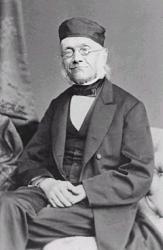Planning worship?
Check out our sister site, ZeteoSearch.org,
for 20+ additional resources related to your search.
- |
User Links
Search Results
Das sei alle meine Tage, Meine Sorg und meine Frage
Author: Friedrich August Tholuck Appears in 9 hymnals Hymnal Title: Calvin Hymnary Project
Das sei alle meine Tage, Meine Sorg und meine Frage
[Das sei alle meine Tage]
Appears in 23 hymnals Hymnal Title: Die Glaubensharfe (With Melodies) Incipit: 13535 35442 34243 Used With Text: Das sei alle meine Tage
[Das sei alle meine Tage]
[Das sei alle meine Tage]
Appears in 2 hymnals Composer and/or Arranger: Johann Georg Christian Störl Hymnal Title: Glaubenslieder Incipit: 55667 12115 56671 Used With Text: Das sei alle meine Tage
[Das sei alle meine Tage]
Das sei alle meine Tage, Meine Sorge
Hymnal: Deutsches Gesangbuch der Bisch. Methodisten-Kirche #d71 (1867) Hymnal Title: Deutsches Gesangbuch der Bisch. Methodisten-Kirche Languages: German
Das sei alle meine Tage, Meine Sorge
Das sei alle meine Tage
Hymnal: Die Glaubensharfe (With Melodies) #423 (1886) Hymnal Title: Die Glaubensharfe (With Melodies) Languages: German Tune Title: [Das sei alle meine Tage]
Das sei alle meine Tage
Das sei alle meine Tage
Hymnal: Die Glaubensharfe #423 (1886) Hymnal Title: Die Glaubensharfe Languages: German
Das sei alle meine Tage
August Tholuck

1799 - 1877 Person Name: Friedrich August Tholuck Hymnal Title: Glaubenslieder Author of "Das sei alle meine Tage" in Glaubenslieder Tholuck, Friedrich August Grottreu, D.D., was born at Breslau, March 30, 1799. He studied at the Universities of Breslau and Berlin. He became a University lecturer (Privatdocent) at Berlin, in Dec. 1820, and extraordinary professor of Theology there in April, 1823 (D.D. from Berlin in 1826). In Nov., 1825, he was appointed ordinary professor of Theology at Halle, and entered on hiss duties at Easter, 1826. He was also appointed as University preacher, in 1839, and a member of the Magdeburg consistory in 1829. From Michaelmas, 1828, to Easter, 1829, he officiated as chaplain to the German Embassy at Rome, having gone there on sick leave. Otherwise, after 1826, his life was spent almost entirely at Halle. He died at Halle, June 10, 1877 (Koch, ,vii. 26; Herzog's Real-Encyklopädie, xv., 560, &c).
Tholuck was a celebrated preacher, and a great linguist. He is perhaps best known to English readers by his Commentaries, as e.g. on Romans, 1824 (5th ed., 1856; Eng. translation 1833 and 1836); on St. John's Gospel, 1827 (7th ed., 1857; Eng. tr. 1859); on the Sermon on the Mount, 1833 (5th ed., 1872; Eng. tr. 1834 and 1837, improved in 1859); on Hebrews, 1836 (3rd ed., 1850; Eng. tr. 1842); on the Psalms, 1843 (2nd ed., 1873; Eng. tr. 1856), &c.; and by hisDie Lehre von der Sünde und dem Versohner, oder die wahre Weihe des Zweiflers, 1823 (enlarged ed., 1825; 9th ed., 1871), a sort of religious novel which has powerfully influenced many, e.g. C. J. P. Spitta and has been translated into English, French, Danish and Swedish. He was a many sided man, who exercised a great and far-reaching influence over his contemporaries, and who, by the charm of his personal character as well as by his learning, drew crowds of students to Halle, not only from all parts of Germany, but also from Great Britain and America. His hymns appeared in his Stunden christlicher Andacht, Hamburg, 1839-40. This is a volume of Meditations which has passed through many eds. in German (8th ed., 1870), and of which at least two versions have appeared in English (as Hours of Christian Devotion. In the preface to the Stunden, Tholuck mentions that he had intended to introduce many quotations from German hymns and sacred poems, but could find few that suited his purpose. So he adds "I therefore myself spoke in the language of poetry; only a very few of the verses here interspersed are by other authors." He does not however indicate in any more definite way which are his own compositions.
A few pieces from this work have passed into American-German hymn-books, and they have all been translated by Dr. Menzies. Two of which are probably original, are here noted, viz.:—
i. Einst wird's geschehn, dass auf der Erde. Second Advent. In his Stunden, 1840, p. 470, as the conclusion of Med. lxvii., in 2 st. of 8 1., and founded on Rom. viii. 21-23. Translated as:—
A day will dawn when from on high. In full by Dr. R. Menzies, 1870, as above, p. 551. Included by H. L. Hastings in his Songs of Pilgrimage, Boston, U. S., 1880, No. 193.
ii. O süsser Hirte, unter deinem Stabe. The Good Shepherd. In his Stunden, 1840, p. 151, in 7 stanzas of 4 lines as the conclusion of Med. xxvi., and founded on Ps. xxiii. The trs. are (1) "O gentle Shepherd, guided by Thy hand, My soul hath found her everlasting rest." By Miss Dunn, 1853, as above, p. 110. (2) “O gentle Shepherd by Thy staff directed.” By Miss Burlingham in the Bristol Herald, Sept., 1865, p. 143, repeated in Reid's Praise Book, 1872. (3) "Beneath Thy gentle care, O Shepherd dear." By Dr. R. Menzies, 1870. [Rev. James Mearns, M.A.]
-- Excerpts from John Julian, Dictionary of Hymnology (1907)
August Tholuck
Johann G. C. Störl
1675 - 1719 Person Name: Johann Georg Christian Störl Hymnal Title: Glaubenslieder Composer of "[Das sei alle meine Tage]" in Glaubenslieder Johann Georg Stoerl; b. 1675, Kirchberg; d. 1719, Stuttgart
Evangelical Lutheran Hymnal, 1908
Johann G. C. Störl


 My Starred Hymns
My Starred Hymns


